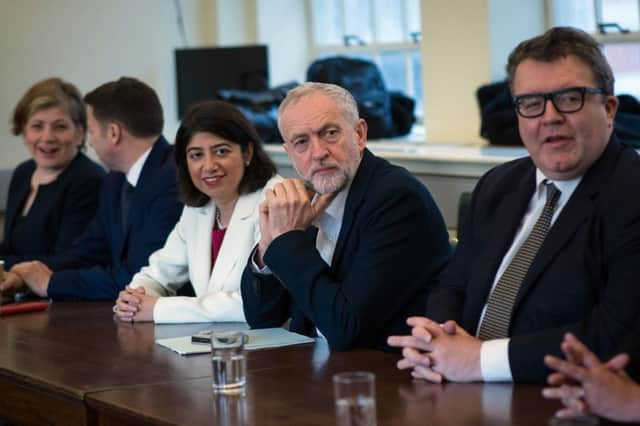Labour may face Commons spilt over Trident


Party policy at Westminster level is still officially in favour of maintaining the nuclear weapons system, but Labour leader Jeremy Corbyn is committed to scrapping Trident.
His ally Mr Livingstone, who is co-chairing a review of Labour’s defence policy, said the sections of the work relating to Trident could be completed in “eight to 10 weeks”.
Advertisement
Hide AdAdvertisement
Hide AdThe timescale could mean recommending a change in the party’s policy before David Cameron calls a vote giving the green light to a new generation of submarines to carry the nuclear missiles.
Mr Corbyn’s contentious reshuffle saw Trident opponent Emily Thornberry appointed shadow defence secretary in place of pro-renewal Maria Eagle.
No date has yet been set for the Commons vote but the review led by Mr Livingstone, now alongside Ms Thornberry rather than Ms Eagle, will prioritise the work on Trident.
Mr Livingstone, the former London mayor, speaking on told BBC Two’s Newsnight: “We will desperately try and do it as rapidly as possible. So we will focus on the Trident issue ahead of the rest of the defence review ... With a bit of luck that can be done in eight to 10 weeks.
“It will take a lot of work for me and Emily, but that’s good.”
Any attempt to change the official party policy would take longer, with the annual conference in September required to ratify a new position - something that could prove difficult if trade unions oppose scrapping Trident and the valuable defence jobs that come with it.
Shadow minister without portfolio Jon Ashworth conceded that the party’s splits on Trident may lead to a repeat of the situation faced by Mr Corbyn over the decision on bombing Islamic State (IS) in Syria, where he was forced to allow a free vote.
Asked if there could be a repeat of the position where the leader and members of his shadow cabinet took opposing positions, Mr Ashworth said it was “not desirable, but I suspect it’s inevitable”.